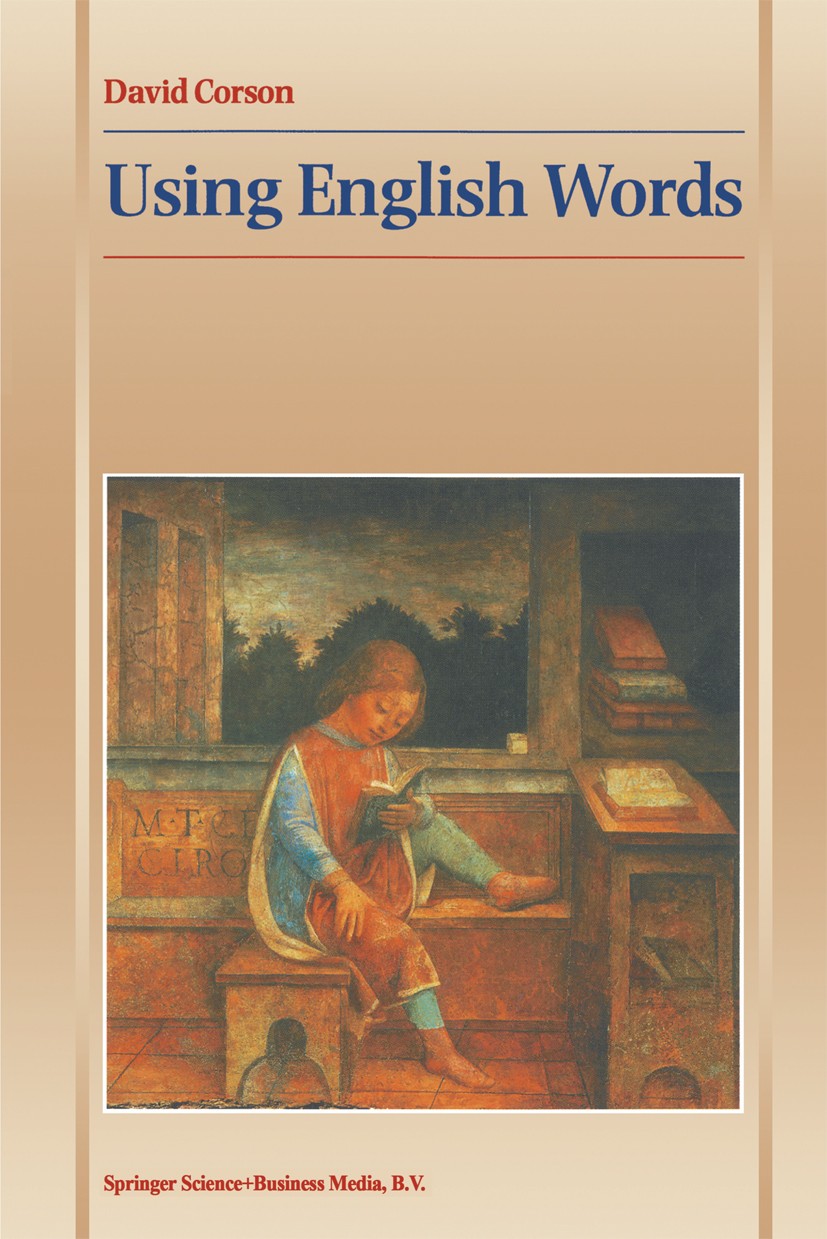| 书目名称 | Using English Words | | 编辑 | David Corson | | 视频video | http://file.papertrans.cn/945/944559/944559.mp4 | | 图书封面 |  | | 描述 | Using English Words examines the impact that the life histories of people have on their vocabulary. Its starting point is the taken-for-granted fact that the vocabulary of English falls into two very different sections. Randolph Quirk mentions this striking incompatibility between the Anglo Saxon and the Latinate elements in English: "the familiar homely-sounding and typically very short words" that we learn very early in life and use for most everyday purposes; and "the more learned, foreign-sounding and characteristically rather long words" (1974, p. 138). It is mainly the second type of word that native speakers start learning relatively late in their use of English, usually in the adolescent years of education, and keep on learning. It is mainly the one type of word, rather than the other, that ESL/ EFL students have more difficulty with, depending on their language background. This book shows how discursive relations, outside education, ‘position‘ people through their vocabularies. Some are prepared for easy entry into lifetime prospects of relative privilege and educational success, while others are denied entry. In writing this book, I share an aim with other writers who ob | | 出版日期 | Book 1995 | | 关键词 | English; native speaker; philosophy; psycholinguistics; psychology | | 版次 | 1 | | doi | https://doi.org/10.1007/978-94-011-0425-8 | | isbn_softcover | 978-0-7923-3711-9 | | isbn_ebook | 978-94-011-0425-8 | | copyright | Springer Science+Business Media New York 1995 |
The information of publication is updating

|
|
 |Archiver|手机版|小黑屋|
派博传思国际
( 京公网安备110108008328)
GMT+8, 2026-1-19 11:05
|Archiver|手机版|小黑屋|
派博传思国际
( 京公网安备110108008328)
GMT+8, 2026-1-19 11:05


